On India’s 72nd Independence Day, we look back at 5 milestones when people-power won major environmental battles in India.
-
Prevention of Dilution of the Nuclear Liability Bill
Collective power of people joined hands with Greenpeace India to strongly object to any attempts to dilute the Civil Liability for Nuclear Damage Act, 2010. If enforced, this controversial international law would have allowed nuclear suppliers to escape from bearing the cost of a nuclear plant mishap. We demanded that India should not enact the proposed Civil Liability for Nuclear Damage Bill as it was “discriminatory’ and would allow foreign suppliers to go scot-free.
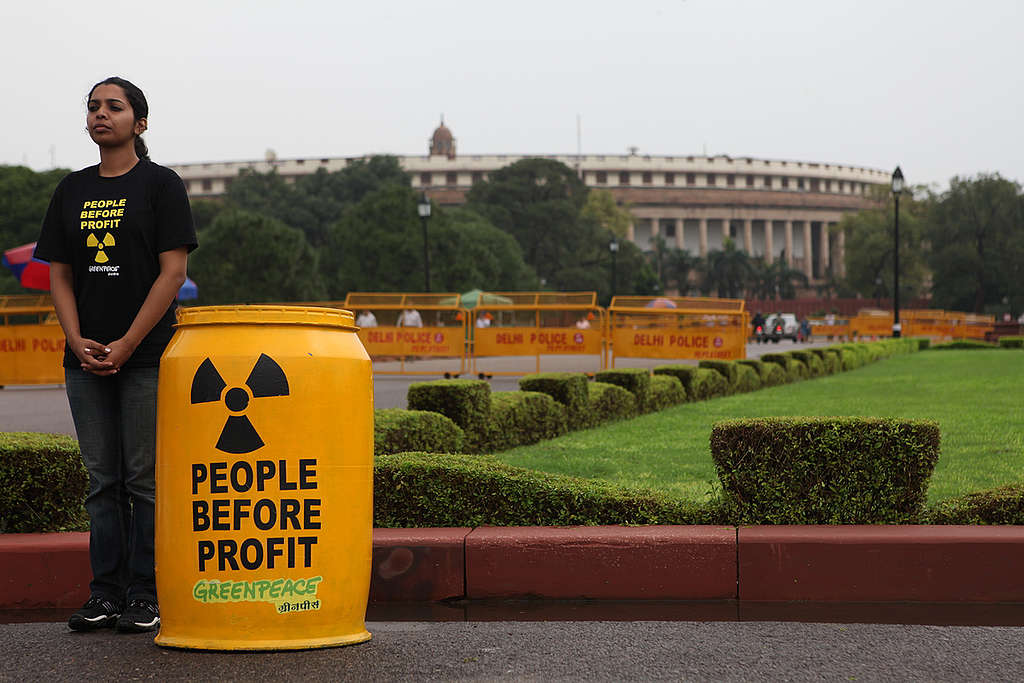
Greenpeace activists display banners and barrels bearing the message ‘People before Profit’ in front of the Parliament building in Delhi. ©Amit Madheshia/Greenpeace
After many appeals, protests and actions, the nuclear liability law now includes a compensation package for victims which matches that of the U.S. The law includes language that makes suppliers of equipment, raw materials, and services liable after the construction of a plant in case of a nuclear accident.
-
Moratorium on Genetically Modified Brinjal Cultivation
The Biotechnology Regulatory Authority of India Bill 2011 (BRAI Bill) has been proposed by the Ministry of Science and Technology, Government of India. It is a bill ‘to promote safe use of biotechnology’ and to set up a new regulatory mechanism for matters connected to biotechnology including research, use, trade and manufacture.
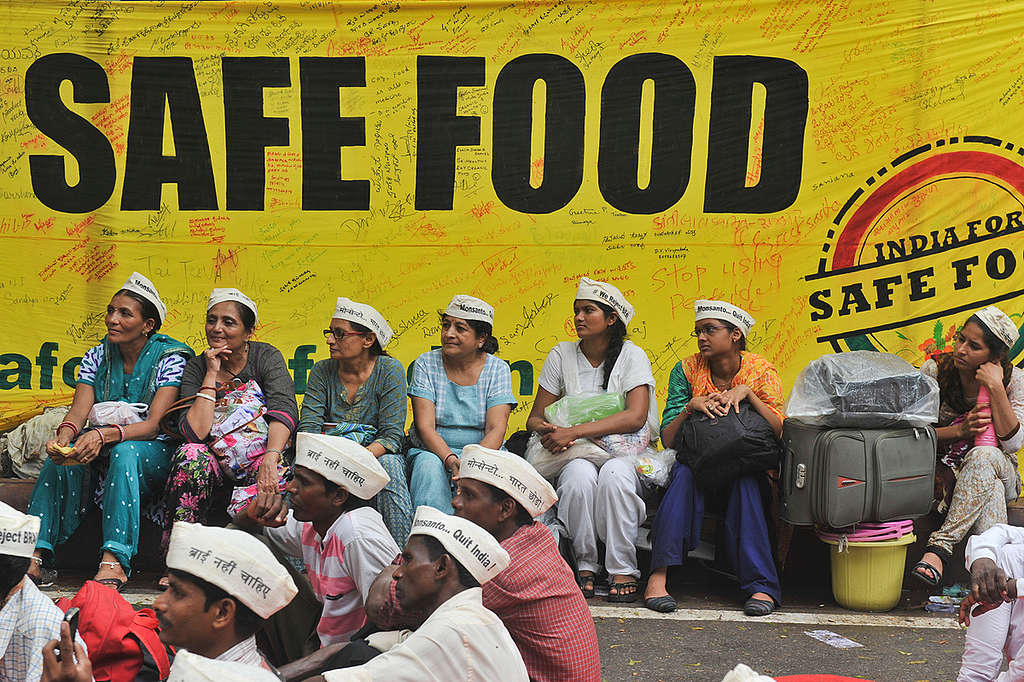
Citizens across 20 states of India came together at Jantar Mantar for a day-long sit-in and marched towards the Parliament demanding immediate withdrawal of BRAI bill 2013. ©Karan Vaid/Greenpeace
There is an unprecedented debate around Genetically Modified (GM) crops, one of the products of modern biotechnology, in India at this point. This debate started with the introduction of Bt Cotton, the only GM crop which is commercially cultivated in the country, but reached its heights when existing regulatory system was on the verge of approving Bt Brinjal, the first GM food crop. This global debate is grounded on the various scientific studies that clearly indicate potential harm to health and environment from environmental release of GM crops.
In 2010, Jairam Ramesh, former Minister of Environment and Forests declared a moratorium on Bt brinjal, which was being considered for commercial cultivation in India at the time. Following a series of public consultations, and submissions made by academics, economists, environmentalists, farmers, civil society groups and citizens alike, the Minister declared the moratorium decision is “responsible to science and responsive to society.”
-
India’s First Ecological Village, Kedia
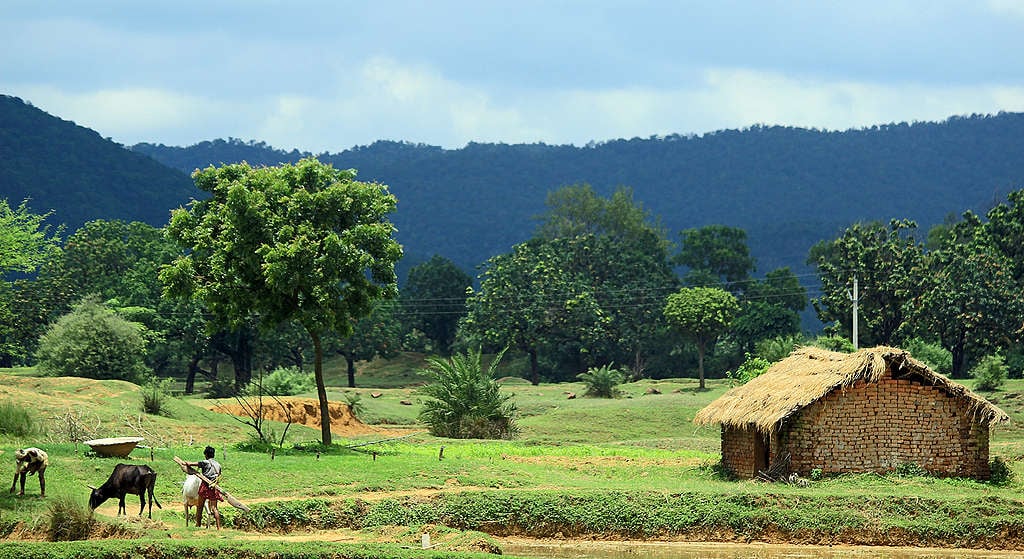
A scenic view of the landscape in Kedia village during the monsoon season, which makes the environment there pristine and green. Bihar faces high temperatures during the summer time with the mercury topping over 45 degrees celsius. Kedia is part of Greenpeace Living Soils project, which is a nationwide campaign with a call to implement government policies to save the soils from harmful impacts of chemical fertilizers. ©Shiv Kumar/Greenpeace
The “Bihar Living Soils” campaign was an attempt to reduce dependence on agro-chemicals such as chemical fertilizers and chemical pesticides, and bring soil back to life by rejuvenating its health and biodiversity while using biomass-based organic supplements. The period of transition from chemical-laden farming to ecological agriculture was not easy, but Kedia’s farmers persevered.
Today, apart from enjoying the benefits of reduced input costs on farming by almost 60%, watching the beetles and the kingfishers make a comeback, becoming self-sufficient and eliminating middlemen, the Kedia farmers are fully trained to help in the capacity-building of other farmers who have chosen to take the chemical-free route.
Seeing the success of the Kedia model, and with the intention of increasing farmers’ income and climate resilience, the state government has announced replication of such organic farming models in all districts of Bihar. In addition, developing organic farming corridors along the state and national highways have been included under state’s 3rd Agriculture Roadmap.
-
Demanded India’s First Clean Air Action Programme (NCAP)
The announcement of National Clean Air Programme (NCAP) was made on December 18, 2017 to a reply in the Rajya Sabha by the Minister of Environment Forest Climate Change (MoEFCC). The National Clean Air Program is an important first step towards ensuring clean air for India. To make it truly national, it’s important to have a measurable, focused and precise targets with clear timelines and demonstrable accountability towards public health.
The citizens played a unique role in policy announcement, especially so since we are directly affected by its outcomes. More than one lakh people together demanded a clean air action plan, and we’re close to victory; the real victory is the enforcement and implementation!
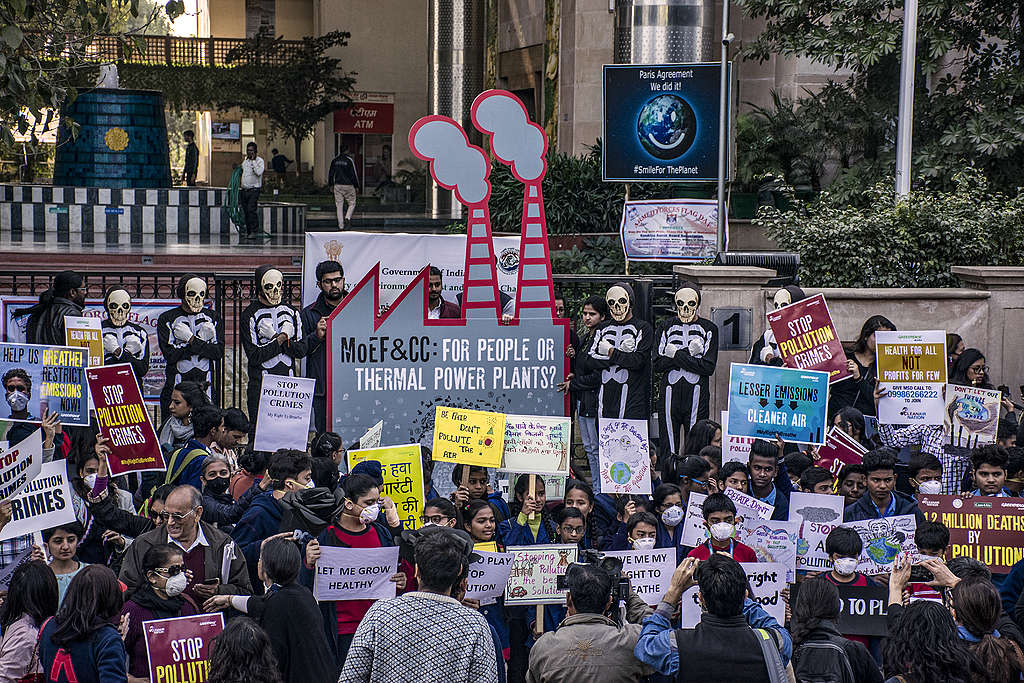
To mark the emission deadline day (D-Day) a group of citizens, volunteers and activists from Greenpeace India, Help Delhi Breathe, My Right to Breathe, Jhatkaa, The Climate Agenda, URJA and many other groups representing people across India, gathered outside the Ministry of Environment, Forests & Climate Change, to remind the minister of the expiring deadline, and claiming their Right to Life & Clean Air.
-
Upholding the Forest Rights Act (FRA)
Conception and passage of the Forest Rights Act was a result of decades of struggle and sacrifice of millions of tribal communities across India and, of their organizations, of numerous activists and intellectuals working on tribal issues.
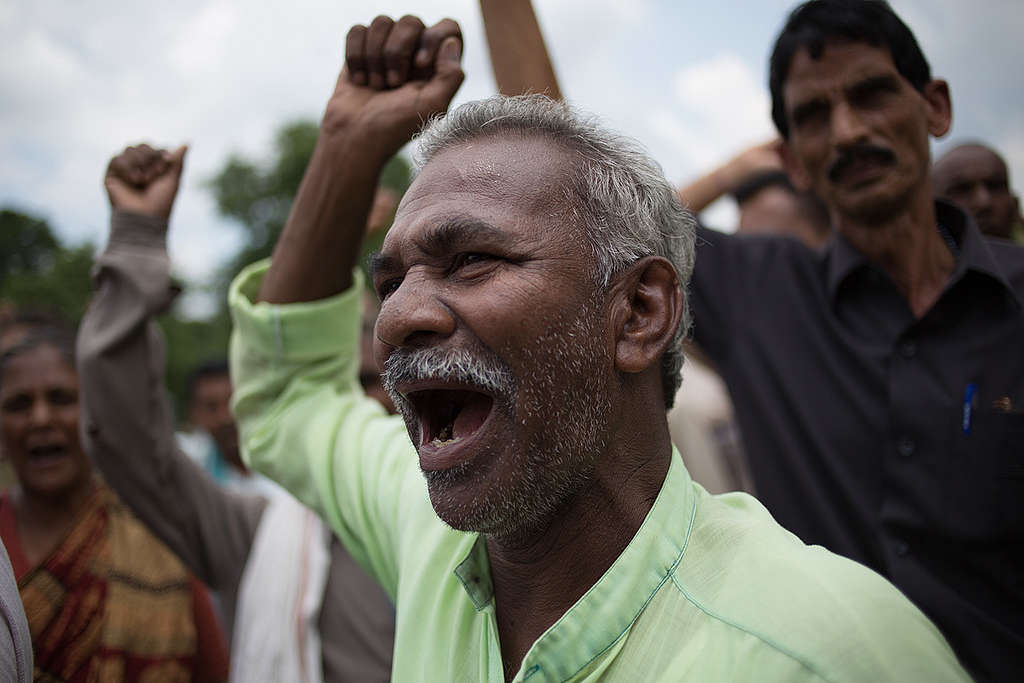
People from eleven villages around the Mahan forest area hold a rally – Van Adhikar Sammelan – to tell Essar Power they won’t allow coal mining in their forests, just as the inhabitants of Niyamgiri have stopped Vedanta from taking over their forests for mining. ©Vivek M./Greenpeace
After years of campaigning, a forest block worth 4 lakh forests was withdrawn from coal mining auction. In an official reply to a Greenpeace India’s Right to Information request, the Ministry of Coal confirmed that the Mahan forest, in the central state of Madhya Pradesh, will be kept off limits, in line with recommendations from the Indian Environment Ministry.
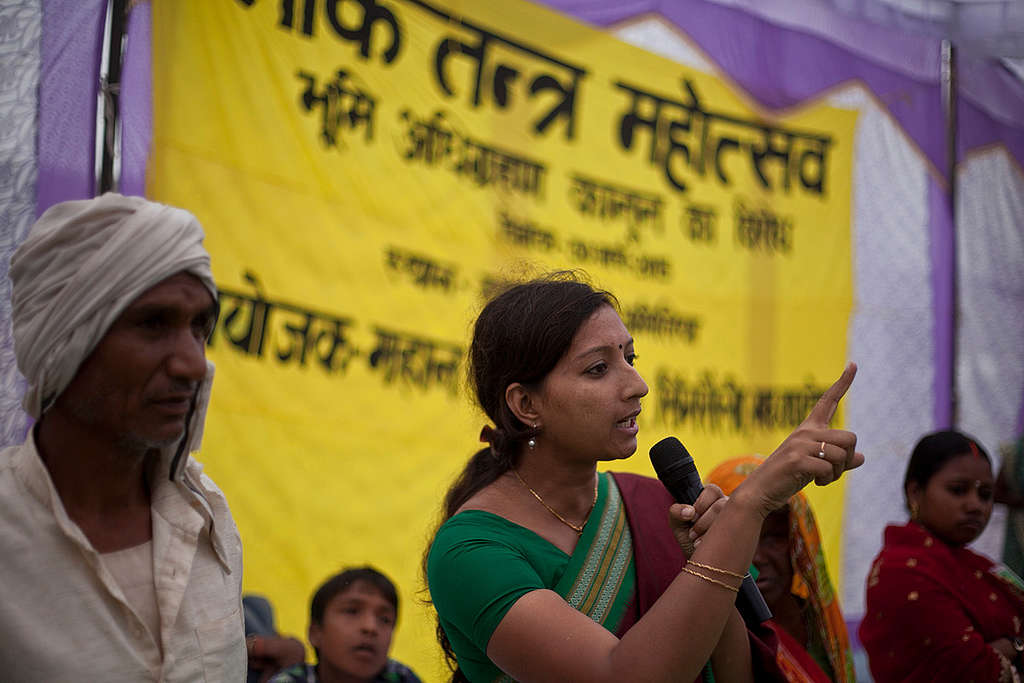
Priya Pillai, former Senior Campaigner for Greenpeace India, addresses local people during celebrations for the Government’s decision to stop the Mahan coal block from mining. Saving the forests and livelihoods of thousands was celebrated by people from 20 different villages at a rally in Amelia village, in the Mahan forest block, Singrauli region, Madhya Pradesh. ©Greenpeace/Sudhanshu Malhotra
Sajan Ponappa is a Photo Desk Officer in the Communications unit at Greenpeace India.
